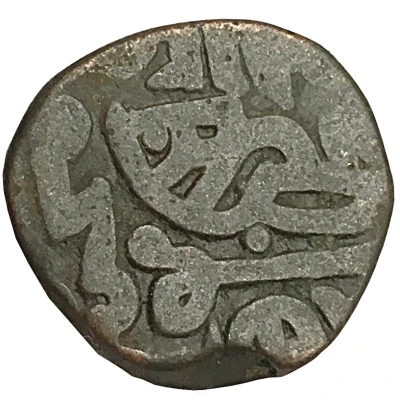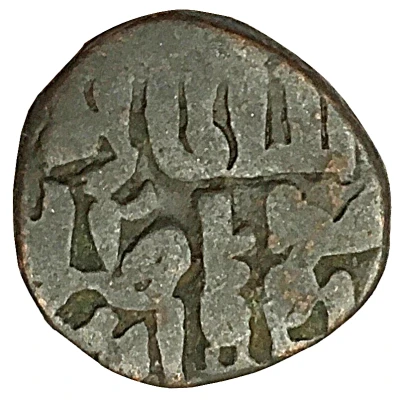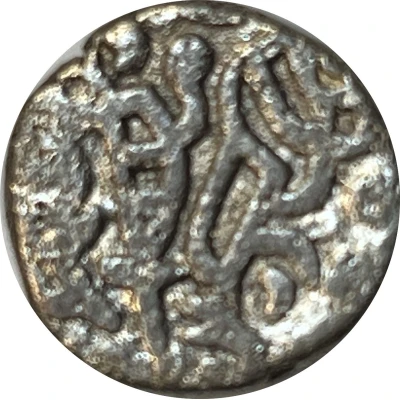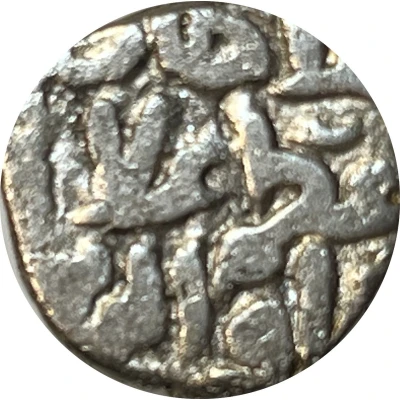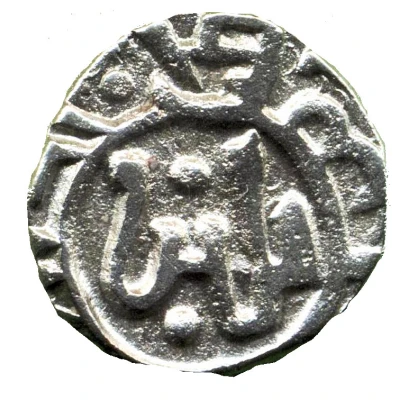
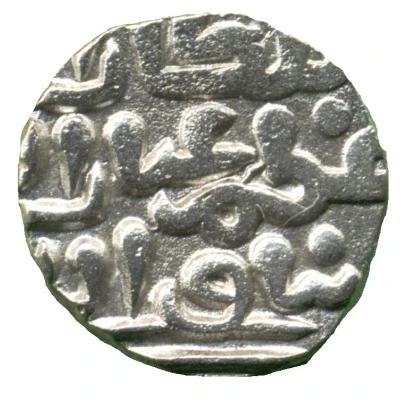

1 Jital - Ghiyas-ud-din Balban ND
| Billon | 3.6 g | 15 mm |
| Issuer | Sultanate of Delhi (Indian Sultanates) |
|---|---|
| Sultan | Ghiyas ud-Din Balban (1266-1287) |
| Type | Standard circulation coin |
| Years | 1266-1287 |
| Value | 1 Jital (1⁄48) |
| Currency | Tanka (1206-1526) |
| Composition | Billon |
| Weight | 3.6 g |
| Diameter | 15 mm |
| Thickness | 3 mm |
| Shape | Round (irregular) |
| Demonetized | Yes |
| Updated | 2024-10-05 |
| Numista | N#38885 |
|---|---|
| Rarity index | 56% |
Reverse
Inscription in Persian
Edge
Plain
Comment
Ghiyas ud din Balban (reigned: 1266–1287) (Urdu: غیاث الدین بلبن) was the ninth sultan of the Mamluk dynasty of Delhi. Ghiyas ud Din was the wazir and heir of the last Shamsi Sultan, Nasir ud-Din. He reduced the power of the treacherous nobility and heightened the stature of the sultan.
His original name was Baha Ud Din. He was an Ilbari Turk. When he was young he was captured by the Mongols, carried to Ghazni and sold to Khawaja Jamal ud-din of Basra, a Sufi. The latter then brought him to Delhi in 1232 AD along with other slaves, and all of them were purchased by Iltutmish. Balban Belonged to the famous band of 40 group of Turkic slaves of Iltutmish.[1]
Ghiyas made several conquests, some of which were as vizier. He routed the Mewats that harassed Delhi and reconquered Bengal, all while successfully facing the Mongol threat, a struggle that spent his son and heir's life. So it came to pass that upon his death in 1287, his grandson Qaiqubad was nominated sultan, undermining the achievements of his grandfather.
In spite of having only a few military achievements, Ghiyas ud-din made civil and military reforms that earned him the position of the strongest ruler between Shams ud-din Iltutmish and the later Alauddin Khalji, whose military achievements rest on the order established within the sultanate by Ghiyas ud din Balban.
Interesting fact
One interesting fact about the 1 Jital coin of Ghiyas-ud-din Balban is that it was issued during a time of significant economic and cultural growth in the Sultanate of Delhi. The coinage of this period, including the 1 Jital, featured unique calligraphic styles and designs that reflected the cultural influences of the region. The 1 Jital coin, in particular, features a distinctive blend of Islamic and Indian architectural motifs, showcasing the cultural exchange and synthesis that characterized the Delhi Sultanate during this time.
Price
| Date | Mintage | VG | F | VF | XF | AU | UNC |
|---|---|---|---|---|---|---|---|
| ND (1266-1287) | - | - | - | - | - | - |
Values in the table are based on evaluations by sales realized on Internet platforms. They serve as an indication only for 1 Jital - Ghiyas-ud-din Balban ND (1266-1287) coin.
